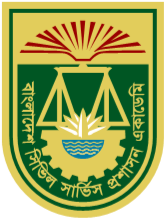Can we Formulate English Education Policies Which Respond to Ground Level? Comparative Study between Sub-urban & Remote Rural Areas in Bangladesh
Keywords:
English education policies, ground level, comparative study, BangladeshAbstract
This paper aims to look at the English education policies in Bangladesh. This article gives
an explanation of the achievement of English at secondary level focusing on suburban and
remote areas in Bangladesh by internal comparative analysis. English has a case of historical
relevance in Bangladesh. In spite of long schooling in English language, students at
secondary level, in particular, are not proficient in English. Grounded language policies are
required for the progress of a uniform education system in Bangladesh. As there is no such
policy in Bangladesh, English language teaching and learning is directly affected. Inductive
Thematic Analysis was employed to analyze the numeric interview data. In the process of
analysis and assessment of language policies, attempts will be made to realize the
justification for such policies and their implications. Moreover, the paper will describe the
emergence of English as a fundamental second language in the educational institutions and
how it is linked to the economic development of the region.

